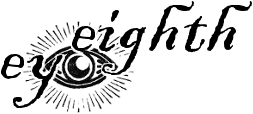A post on Reddit asked for advice: what should a referee do (if anything) when higher level players return to a dungeon populated with lower level monsters? Users provided some solid responses, including:
- Change nothing, it will remind them how powerful they have become
- Evolve the dungeon over time: new monsters have moved in
- Another adventuring party has already looted the place
Whatever choice one makes, I advise against considering "balance" as a major factor. Do not tune your encounters to make them all "level appropriate." Most good players will notice your heavy-handedness. If you're reading this, you probably already agree.
That said, in a sandbox where players can follow whatever leads they choose, the game world should not stand still waiting for them.
So, how should you determine what happens? Sometimes the answer will be obvious from the establishing fiction of the dungeon: the cultists finished their ritual, or the prisoner you were sent to rescue is already dead. When the answer isn't obvious, do what any good OSR referee does: consult a random table!
I created a d66 table to determine what happens to the dungeon while your party followed other leads. The results generally follow the reaction roll curve: lower results increase the challenge and higher results likely prove fortuitous in some way. Most results in the middle add complexity that isn't inherently good or bad.
 |
| What Happened to the Dungeon d66 Table |
With these results you can simulate a living world without artificially tuning your dungeons to some "challenge rating" or relying solely on referee discretion. Enjoy!
EDIT: I created the same table in a slightly more attractive half-letter booklet format. I didn't like the way the original looked when printed.
| What Happened to the Dungeon d66 Table (Booklet Version) |


